What’s Your Favourite Kind Of Tea? 🍃 I Hope Everyone Is Well Amidst The Chaos 🌈

What’s your favourite kind of tea? 🍃 I hope everyone is well amidst the chaos 🌈
More Posts from Pussymagickk and Others
Healing with Herbs
How to make a tincture
Making a tincture involves steeping the herb or root in alcohol, extracting its oils, minerals, alkaloids, and glycosides so that it is in its purest form. You can use vegetable glycerin or apple cider vinegar instead, particularly in tinctures intended for children, but they aren’t quite as effective at pulling out the good stuff. You’ll need strong alcohol, at least 80 proof. Everclear works well, as does vodka or brandy. You’ll also need a pint jar to fill with the herb or plant you want—any of the herbs listed above will work here.
Chop the herb up a bit or bash it around with a mortar and pestle to help it break down. You’ll want the jar to be full, but not pack your herbs in too tightly. Then fill the jar completely with the alcohol. (If you’re using dried herbs or roots, you need only put in enough to reach halfway, and then add the alcohol up to the top.)
Seal the jar tightly. Label and date it, and let it rest in a cool, dark place.
For the first week, shake it once a day, then let it rest for five more weeks. At the end of the resting period, use a layer of muslin or cheesecloth held tightly over the jar to strain out the liquid. Decant the tincture into one of those small, dark glass bottles, preferably one with a dropper, and keep it stored away from direct sunlight. It should last for five to ten years.
How to make herbal oil
It’s more trouble than it’s worth to make your own essential oils. A true essential oil is extracted by boiling the herb in question and skimming the oil off the top—that’s a task best left to the professionals. But you can make your own herbal oil. It may not be quite as distilled, but it can still be effective, and it’s a great way to preserve herbs for use long into the winter. The nice thing about creating your own oils is that you can use any combination of herbs that you desire. You might mix calendula, catnip, lemon balm, marshmallow, mullein, plantain leaf, and yarrow for an oil that is particularly effective for skin care, or lavender, vervain, lemon balm, and yarrow for a soothing oil to rub on the temples. Chop or bruise your chosen herbs and place them in a jar. Fill the jar with the carrier oil of your choice (olive or almond oil works well), covering the herbs by one inch, and leaving one inch of space at the top. Close the jar tightly, and allow it to sit in as much sunshine as possible for a month. Strain the oil through a cheesecloth on an as-needed basis, leaving the rest to continue steeping.
How to make a poultice
A poultice is a soft, moist mass of herbs, cloth, and other ingredients, and it’s an excellent tool for treating topical infirmities. A hot poultice is excellent for drawing out infection, as with bee stings or draining abscesses, while a cold poultice will help reduce inflammation. Gather the herbs you want to use, either fresh or dried. If they’re fresh, you may want to mash the herbs up in a mortar and pestle (the traditional way) or blitz them through a food processor (the modern way). Even if you’re planning on making a cold poultice, add a couple of tablespoons of hot water to your herbs to awaken them, before letting them cool. You can add medicinal clay powder, Epsom salts, or baking soda and combine with water until the mixture becomes a thick paste. For ailments like congestion or insect bites, you can place the poultice directly on the skin, making sure, of course, that it isn’t too hot. To treat a burn or something that could easily become infected, place a clean cotton cloth between the skin and the poultice.
Common herbs and their uses
Ashwagandha: The name translates to “smell of horse.” This herb is hard to find fresh, but powders, pills, teas, and extracts are available. Benefits: Increases energy, boosts the immune system, antiinflammatory, reduces anxiety. Suggested use: Stir ¼-½ tsp. powder into warm milk and honey before bed. Concerns: May increase thyroid hormone levels and lower blood sugar.
Black cohosh: This member of the buttercup family could be grown in a garden. Dried roots, capsules, teas, and extracts are also available. Benefits: Relieves menstrual cramps and arthritic pain. Eases symptoms of menopause. Suggested use: Drink as a tea or mix with honey as a syrup. Concerns: May cause upset stomach, so consider taking with food.
Calendula: Also known as marigold, this herb could be grown in a garden, but is also available as teas, oils, and creams. Useful for dyeing and food coloring as well. Benefits: Helps heal cuts. Good for diaper rash or other skin irritations. Calms an upset stomach. Suggested use: Steep petals in just below boiling water for ten minutes, then drink as a tea. Add dried flowers to coconut, almond, or olive oil as a salve. Concerns: None known.
Catnip: It’s not just for cats! Catnip is easily grown and also available as a capsule, tea, extract, and essential oil. It is also handy as an insect repellent. Benefits: Anti-inflammatory. Good for insomnia, upset stomach, menstrual cramps, headache, and treating the common cold. Suggested uses: Steep for tea, sprinkle essential oil into the bath or rub it on the temples, use in cooking (it’s a member of the mint family, so its flavor is better than some). Concerns: None known.
Cranberry: Easily obtained fresh or frozen and also available in pill form, this herb is a great source of vitamin C, fiber, and vitamin E. Benefits: Most frequently used to treat and prevent urinary tract infections. Also shown to reduce risk of cardiovascular disease, slow tumor progression in cancer, and help prevent gum disease. Suggested uses: Because they’re so tart, cranberries often come with a lot of sugar. Try to buy reduced-sugar dried cranberries and stay away from most cranberry juices. If you can manage it, drink the unsweetened juice to relieve a UTI, and certainly try making your own cranberry sauce at Thanksgiving. Concerns: None known.
Dittany: This is one of those herbs with a long history. It is also known as “burning bush.” Easily grown, it is hard to find in dried or tea form. Benefits: Antibacterial, antifungal, and antimicrobial. Good for the skin and the intestines, and is thought to be an aphrodisiac. Suggested uses: Steep in hot water for tea, but use sparingly. Use as an antibacterial balm or poultice. Concerns: If you’ve put some on your skin, stay out of the sun, as it can increase the risk of sunburn.
Elderberry: This herb has been used to battle a flu epidemic in Panama as recently as 1995. It can be grown, but is also available as a pill or an extract. For your personal garden, look specifically for Sambucus nigra, as other elderberry varieties can be toxic. Benefits: Boosts the immune system, treats sinus infections, lowers blood sugar, acts as a diuretic and a laxative, good for skin health and allergies. Suggested uses: They’re delicious! Can be made into a syrup, jams, or jellies—even wine. Concerns: Don’t pick and use wild elderberry unless you’re absolutely certain the plant is Sambucus nigra. Always cook the berries to remove any toxicity.
Feverfew: This is another herb with a long history. Easily grown and available dried, it is most frequently found in capsule form. Benefits: For centuries, it was used to relieve fever, to assist with childbirth, and for fertility. Now it is most frequently used to prevent migraines. It can also help with tinnitus, nausea, dizziness, asthma, and allergies. Suggested uses: It doesn’t taste good, so not recommended even as a tea. Instead, make a tincture or purchase capsules. Concerns: If you do drink it, feverfew can cause irritation in the mouth. If taken in large quantities on a regular basis, stopping can cause withdrawal symptoms, so use only as needed. May cause the uterus to contract, so don’t take while pregnant.
Horse chestnut: This is not the kind of chestnut you’d want to roast on a fire, but it is still useful. It is not recommended for personal processing, as the seed contains esculin, a poisonous substance. Purchase an extract or pill instead. Benefits: Shown to be extremely effective against varicose veins. Also good for hemorrhoids and frostbite. Suggested uses: 300 milligrams of horse chestnut seed extract twice daily. Concerns: Don’t consume raw horse chestnut seeds, bark, or leaves.
Lemon Balm: This member of the mint family has a distinct lemony scent. It is also known as “melissa.” It is easily grown, but also available in tea, extract, and essential oil forms. Benefits: Calms anxiety, encourages restful sleep. Good for the skin, improves mood and mental clarity. Suggested uses: Steep fresh or dried to make tea, use in cooking, use to flavor honey or vinegar, use in a hot bath. Concerns: None known.
Marshmallow: Sadly, these are not the things we put in hot chocolate. The root is available dried, as well as in powder, extract, capsule, and tea form. Benefits: Aids with dry cough, represses inflammation in the lining of the stomach, good for chilblains and sunburn. Suggested uses: Drink as a tea, add to a base oil for a salve. Concerns: May cause low blood sugar.
Milk thistle: This herb is easily grown, as it’s pretty much a weed. It’s available as an extract, pill, or tea. Benefits: Milk thistle can protect your liver from toxins—say, for instance, alcohol. It can even be used to treat cirrhosis and jaundice and helps with environmental toxin damage. Suggested uses: Steep in hot water or make a tincture. Not recommended for use in cooking. Concerns: May cause diarrhea.
Mullein: This is the clear quartz of herbal healing. It is easily found and grown and available both dried and in capsule form. Benefits: Known particularly for respiratory relief, including cough, bronchitis, asthma, and pneumonia, it’s also good for earache, fever, sore throat, migraine, and to heal the skin. Suggested uses: Apply a tincture to relieve ear infection, drink as a tea, use as a salve to heal wounds and bruises. Concerns: None known.
Plantain leaf: Pretty hip these days, as herbal remedies go, plantain leaf is easily grown and available dried or in capsule form. Benefits: Great for the skin, particularly in relieving insect bites, poison ivy, and sunburn. Lowers cholesterol, helps clear up bladder infections, relieves constipation or diarrhea. Suggested uses: Make poultice with clay and water or make a salve with a base oil. Infuse vinegar to spray on the skin to provide pain relief. Drink as a tea. Concerns: None known.
Rue: This herb is also known as “herb of grace.” Easily grown, it is also available dried, in capsule form, or as an essential oil. Benefits: Used to promote menstruation, it provides a sense of calm and well-being and is good for relieving gas, mucus, and arthritis. Suggested uses: As an oil or poultice it can relieve croup or chest congestion. Drink as a tea to ease anxiety. Concerns: This one is serious—it can cause a miscarriage. Use in small amounts, regardless of whether or not you’re pregnant.
Valerian: This is an attractive addition to any garden, with a pleasing scent, but it is the root which holds the good stuff and that does not smell good. Easily grown, this herb is also available in tea, capsule, and extract forms. Benefits: Valerian is very effective against insomnia. It also calms anxiety and depression, and helps with ADHD and headache. Suggested uses: Drink a tea made from the leaves for a mild sedative, or steep the roots for something stronger. Add a tincture to a bath for a gentler, child-friendly alternative. Concerns: None known, but obviously don’t operate heavy machinery.
Vervain: Usually blue vervain is used, but other types seem to work just as well. Easily grown, vervain is also available dried or as an extract. Benefits: Helps with anxiety and sleeplessness. Also provides pain relief, eases tense muscles, and promotes an overall sense of wellbeing. Suggested uses: Steep in hot water as a tea. Not recommended in cooking, though it smells nice, so add a little to a bath. Concerns: May cause nausea.
Yarrow: This member of the sunflower family is easily grown—and quite lovely— and available dried or as an essential oil. Benefits: Relieves fever, as well as cold and flu symptoms. Relieves cramps, provides a sense of calm and relaxation, and aids in restful sleep. Suppresses the urge to urinate (say, during a UTI). Use topically for a rash or small cuts. Suggested uses: Drink as a tea in the evening to induce sleepiness or relieve cold and flu symptoms, or make into a salve for external use. Concerns: None known.
Keep reading
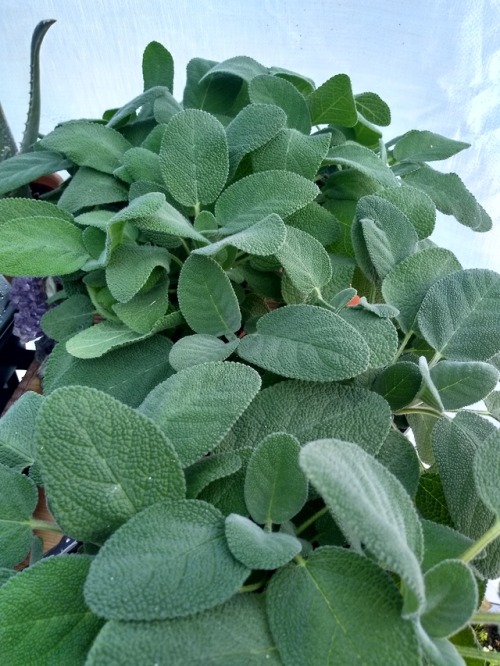
Tips for growing herbs Herbs that like clay soil ★Angelica ★Chives ★Comfrey ★Fennel ★Lemon Balm ★Peppermint Herbs that like dry locations ★Bay ★Garlic ★Lavender ★Oregano ★Rosemary ★Sage ★Thyme Herbs that love shade ★Angelica ★Chervil ★Chives ★Cicely ★Comfrey ★Feverfew ★Ginger ★Horseradish ★Lemon Balm ★Parsley ★Peppermint ★Sweet Woodruff ★Violet Herbs that do well in containers ★Basil ★Bay ★Chives ★Feverfew ★Hyssop ★Lavender ★Lemon Balm ★Oregano ★Parsley ★Peppermint ★Rosemary ★Sage ★Tarragon ★Thyme
The Moon Phases
- compiled from my personal Grimoire | last updated: 13.07.18 -

New Moon: It is a time for new beginnings. Cleansing. But it is also a good time for cursing as well as for banishing. Oh, and divination. If you want to do a spell that needs a lot of planning, this is the perfect time for doing so.
Waxing Crescent: The Waxing Crescent is a good time for attraction spells. Attracting friendship, success and luck. It is also a good time for spells regarding growth.
First Quarter: It´s a time of balance. Spells for motivation are perfect in this phase. As well as in the previous phase, it is also a good time for spells that regard growth.
Waxing Gibbous: A good time for health spells and inviting positivity. I like to do cleansing at this point and to perform spells that need some clarity.
Full Moon: At this point the moon is completely illuminated and very powerful. Divination can be done perfectly at this time. Banishing and healing. The Full Moon is the best time to charge things and yourself.
Waning Gibbous: Release and letting go. (un)doing bindings as well as making space for new things. You can organise yourself at this point, divination is a good tool for doing so.
Last Quarter: Banishing. breaking bad habits and doing curses and hexes. It is a good time to perform spells that want to hide something or someone.
Waning Crescent: This is a time for reflection. Good for spells regarding memory and learning, education and career as well as success. Also a good time to research.
lunar cycles

Good evening everyone!
Tonight I wanted to talk about something I love, the lunar cycles! Learning about this cycle is so enjoyable, because you don’t have to be a Wiccan or a Witch to participate in any of this, however, keeping this in mind when you are meditating and performing spellwork will always enhance your energies and give you greater success, so without further ado, here’s what each of the moon phases mean, and how you can incorporate them into your magick.
New Moon: This is the time for a clean slate and a new beginning, it is important to gather previous thoughts and feelings and reground yourself. It is the time to plan for the future. This can be done by performing prosperity spells, maybe starting and new journal, and a great time to switch up your altar.
Waxing Crescent: The moon is beginning to grow and be showered in light, and this is what happens to you as a person. This is the best time to bring your hopes and intentions for the future to light. You can do this by writing what you want to achieve on small pieces of paper and pinning them to your walls as a reminder of the direction you are heading in.
First Quarter: This is the time to overcome any obsticals that you may be facing and push through with your achievements, you may have to change how you do things in order to reap the benefits. A great time to try out new crystals and herbs to gain effectiveness in your practices.
Waxing Gibbous: This is the time to refine all that you have learnt. By now you should be growing and moving towards your goal, make sure you have recorded how you have done this in your grimoire or book of shadows, and if there are any last minute changes you need to make, now is the time to do this.
Full Moon: The moon is t her fullest, and completely taken by the light. This is a time to reflect on what you have achieved in the first half of the lunar cycle. You can also take this time to cleanse and charge your crystals so they are ready to use again for the next half.
Waning Gibbous: As the darkness takes over the moon once more, it is time to give thanks for all that you have achieved. You can do this by performing a ritual with the pieces of paper you wrote on, by blessing them and burning them (SAFELY) in your cauldron.
Third Quarter: This is the time of acceptance, you must let go of any old habits/relationships/and energies that are keeping you from reaching your maximum. It’s a time to take a step for what is best for you.
Waning Crescent: A final time of reflectance before the moon is plunged into total darkness again. View how far you have come and ultimately, don’t beat yourself up if you haven’t achieved everything you want to - there is always the next lunar cycle.
*picture credit: created by me*
Spotting a Malevolent “Guide”

When first getting into any type of entity work, one of the first things people tend to do is look for some sort of guide. Be that a Higher Self, patron deity, spirit guide, guardian angel, whatever you want to call it- just something more powerful and knowledgable than us to keep us on the right path. I believe most entities are generally good, or at least aren’t motivated to harm us. That said, there are those with something to gain from taking advantage of us. A practitioner in search of a guide is a juicy target, because they’re often inexperienced and naive. Consider everything we’re willing to do to please someone we consider a mentor. Here’s how to spot a phony:
There’s a bad feeling in your gut. This is the first and most important one on the list. If something feels off, something feels wrong, even if there’s no obvious reason why, listen to your gut. It’s the most energy-sensitive and accurate tool you will ever have.
Their identity is shady. This is especially true if they’re claiming to be a deity or any big entity with a name you’ve heard before. A deity should have no qualms just saying who they are, whereas an impostor may try to dance around saying it explicitly. They may pull a “you know who I am” or just confirm whatever you give them. Asking them to prove their identity for your own security should never be offensive.
They’re isolating you from other sources. Are they encouraging you to avoid certain books, certain (not harmful) activities and people? Watch out. By making themselves your only resource, they keep you from learning info that would expose them and keep you reliant on them. Mentorship shouldn’t equal total dependence on them.
Their instructions are harmful. There’s something to be said for doing something outside your comfort zone, but there’s a clear difference between that and something destructive. If a “guide” is telling you to harm folks (including yourself,) mess with your diet in an unhealthy way, abandon helpful behaviors, etc., then that entity does not have your best interests in mind.
You’re giving more than you’re getting. The relationship is more about what you’re giving them, how you’re serving them, and doing what they say, but you aren’t actually learning anything. Your growth is not proportional to what you’ve been putting in to receive their guidance. They may keep delaying your lessons or only dolling out #wisdom instead of useful advice. You’re stuck constantly trying to ‘prove’ you’re ready.
This spirit is bad news! What do I do?
Don’t blame yourself. It happens to the best of us, and getting duped or manipulated is never your fault. Consider it a learning experience.
Tell them to leave. The deal is off, you’ve caught onto their bs, and it’s time for them to leave you alone for good. Lots of spirits will willingly peace out once they’ve been caught. If they refuse to leave…
Banish them. Break out the sage bundles, the candles, the heavy metal music, whatever you need to do. If you need, ask a trusted friend to help. Even online pals may be willing to just send you some energy.
Cleanse everything. Cleanse your space, cleanse your tools, cleanse yourself. Get rid of any lingering energies the phony may have left.
Ward everything. Set up your security system so that the phony can’t return, and other fake guides can’t get in.
Tattle. If the phony was claiming to be a deity or another entity with a name, feel free to let the real entity know. “Hey Apollo, there’s a harmful spirit ‘round these parts who’s claiming to be you.” Rest assured they will handle it accordingly.
🌙 Moon Phases Masterpost 🌙

Following the moon phases and adapting my magic to their power and correspondences has been crucial to my practice. If you’re interested in connecting to the lunar cycle, here are the links to my previous posts on each moon phase.
🌑 New Moon Magic
🌒 Waxing Crescent Moon Magic
🌓 First Quarter Moon Magic
🌔 Waxing Gibbous Moon Magic
🌕 Full Moon Magic
🌖 Waning Gibbous Moon Magic
🌗 Last Quarter Moon Magic
🌘 Waning Crescent Moon Magic





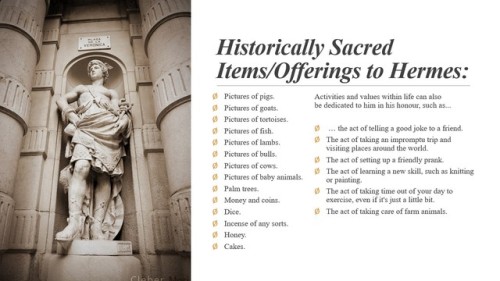
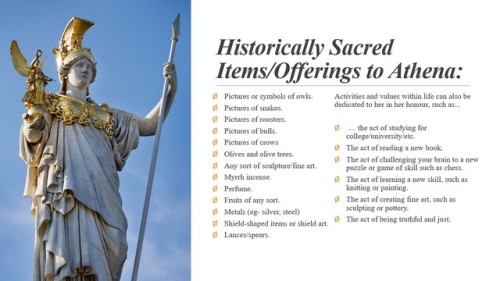
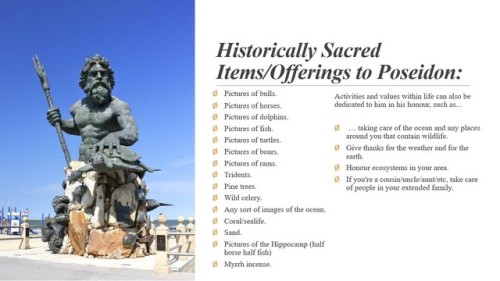




Historically Sacred Items/Offerings to each of the Ouranic Theoi! I made this for my Hellenic polytheism group on discord, so I thought I’d share this information with all of you as well.
All information has been taken from theoi.com as well as various historical books on the gods, and I have decided to make this powerpoint so that other people don’t have to sift through all the pdfs and books themselves.
Make sure to click each image to get a fullview! Ευχαριστώ!
beginner witch tings
m a s t e r p o s t 💫🔮🌙

wheel of the year/ sabbats (yule) (imbolc) (ostara) (beltane) (litha) (lammas) (mabon) (samhain) *
basics of sigil making (x) (x) (x)
intent/intention and why it’s so important
candles + color magick
beginner herbs and their correspondences
book of shadows vs grimoire (how to begin)
grounding
beginner crystals and their correspondences
c l e a n s i n g (room) (crystals)
random books i found (e-books) (1) (2) (3) (4) (5) (6)
*i corrected the links
✰✰God And Spirit Correspondences✰✰

✰ The following lists contain information on magical goals and their related deities
AGRICULTURE • Adonis, Amon, Aristaeus, Baldur, Bonus Eventus, Ceres, Consus, Dagon, Demeter, Dumunzi, Esus, Gahanan, Inari, Osiris, Saturn, Tammuz, Thor, Triptolemus, Vertumnus, Yumcaa, Zochipilli
ARTS • Athena, Ea, Hathor, Odin, Thor
ASTROLOGY • Albion
CATS • Bast, Freya
CHILDBIRTH • Althea, Anahita, Bes, Camenta, Cihuatcoatl, Cuchavira, Isis, Kuan Yin, Laima, Lucina Meshkent
COMMUNICATIONS • Hermes, Janus, Mercury
COURAGE • Tyr
DREAMS • Geshtinanna, Morpheus, Nanshe
EARTH • Asia, Consus, Daghda, Enlil, Frigga, Gaea, Ge, Geb, Kronos, Ninhursag, Ops, Prithivi, Rhea, Saturn, Sif, Tellus
FERTILITY • Amnu, Anaitis, Apollo, Arrianrhod, Asherali, Astarte, Attis, Baal, Bacchus, Bast, Bona, Dea, Boucca, Centeotle, Cernunnos, Cerridwen, Cybele, Daghda, Demeter, Dew, Dionysus, Eostre, Frey, Freya, Frigg, Indra, Ishtar, Ishwara, Isis, Kronos, Ono, Lulpercus, Min, Mut, Mylitta, Ningirsu, Ops, Osiris, Ostara, Pan, Pomona, Quetzalcoatl, Rhea, Rhiannon, Saturn, Selkhet, Sida, Tane, Telepinu, Telluno, Tellus Mater, Thunor, Tlazolteotl, Yarilo, Zarpanitu
GOOD LUCK AND FORTUNE • Bonus Eventus, Daikoku, Fortuna, Ganesa, Jorojin, Laima, Tyche
HEALING • Apollo, Asclepius, Bast, Brigid, Eir, Gula, Lxlilton, Khnos, Paeon
JOURNEYS • Echua, Janus
LAW,TRUTH, AND JUSTICE • Astraea, Maat, Misharu, Themis
Love • Aizen Myo-O, Alpan, Angus, Aphrodite, Asera, Astarte, Asthoreth, Belili, Creirwy, Cupid, Dzdzilelya, Eros, Erzulie, Esmeralda, Fenrua, Freya, Frigg, Habondia, Hathor, Inanna, Ishtar, Kades, Kama, Kivan-Non, Kubaba, Melusine, Menu, Minne, Mamaja, Odudua, Olwen, Oshun,Prenda,Rao, Sauska, Tlazoletotl, Turan, Venus, Xochipilli, Zochiquetzal
LUNAR MAGIC • Aah, Anahita, Artemis, Asherali, Astarte, Baiame, Bendis, Diana, Gou, Hathor, Hecate, Llmaqah, Ishtar, Isis, Jacy, Kabul, Khons, Kilya, Lucina, Luna, Mah, Mama Quilla, Mani, Menu, Metzli, Myestaa, Nanna, Pah, Selene, Sin, Soma, Taukiyomi, Thoth, Varuna, Yarikh, Yerak, Zamna
MARRIAGE • Airyaman, Aphrodite, Aryan, Bes, Bah,Ceres, Errata, Frigg, Hathor, Hera, Hymen, Juno, Patina, Saluki, Svarog, Thalassa, Tutunis, Vor, Xochipilli
MUSIC AND/OR POETRY • Apollo, Benten, Bragi, Brigid, Hathor, Odin, Orpheus, Thoth, Untunktahe, Woden, Xolotl
REINCARNATION • Hera, Khensu, Ra
SEA • Amphitrite, Benten, Dylan, Ea, Enoil, Glaucus, Leucothea, Manannan Mac Lir, Neptune, Nereus, Njord, Paldemon, Phorcys, Pontus, Poseidon, Proteus, Shoney, Yamm
SHAPE-SHIFTING • Freya, Volkh, Xolotl
SKY • Aditi, Anshar, Anu, Dyaus, Frigg, Hathor, Horus, Joch-Huva, Jupiter, Kumarbis, Nut, Obatala, Rangi, Svarog, Tane, Thor, Tiwaz, Ukko, Uranus, Varuna, Zeus
SLEEP • Hypnos
SOLAR MAGIC • Amaterasu, Apollo, Atum, Baldur, Bochia, Dazhbog, Helios, Hiruku, Horus, Hyperion, Inti, Legba, Lugh, Mandulis, Mao, Marduk, Maui, Melkart, Mithra, Orunjan, Paiva Perun, Phoebus, Ra, Sabazius, Samas, Sams, Shamash, Sol, Surya, Texcatlipoca, Tonatiuh, Torushompek, Utto, Vishnu, Yhi
VENGEANCE • Nemesis
WEALTH AND PROSPERITY • Adad, Acolus, Agni, Amen, Baal, Bragi, Burlash, Catequil, Chac-Mool, Chernabog, Donar, Fomagata, llyapa, Indra, Jove, Jupiter, Kami-Nari, Koza, Lei-Kung, Marduk, Nyame, Perkunas, Pillan, Pulug, Quiateot, Raiden, Rammon, Rudra, Shango, Sobo, Summanus, Taki-Tsu-Hilo, Tawhaaki, Tawhiri, Tefnut, Thor, Thunor, Tilo, Tinia, Typhoeus, Typhon, Yu-Tzu, Zeus, Zu
WISDOM • Aruna, Athena, Atri, Baldur, Brigid, Dainichi, Ea, Enki, Fudo- Myoo, Fugen Bosatsu, Fukurokuju, Ganesha, Minerva, Nebo, Mimir, Oannes, Odin, Oghama, Quetzalxoatl, SIa, Sin, Thoth, Vohumano, Zeus

🍲Kitchen Witchery🍲
In Lisa Chamberlain’s book called ‘Wicca: Kitchen Witchery’ I found some good informations for kitchen witchery and I would like to share it with you so it may will be useful for someone!


🌿Basil 🌿
General Magical Uses: fosters loving vibrations, protection, wards off negativities in a home
🍃Bay Leaf🍃
General Magical Uses: protection, purification, healing, strenght, good fortune, money, success
🌳Cinnamon🌳
General Magical Uses: love, luvck, prosperity, success, raises spiritual vibration
🏵️Dandelion🏵️
General Magical Uses: divination, interacction with spirit world, wishes
🌰Nutmeg🌰
General Magical Uses: money, prosperity, good luck, protection
🍃Oregano🍃
General Magical Uses: peace, deepening love relationships, releasing old relationships
🌱Parsley🌱
General Magical Uses: protection, money, luck, lust, strenght, vitality
🌿Rosemary🌿
General Magical Uses: love and lust spells, promotes healthy rest
❁Sage❁
General Magical Uses: longevity, wishom, protection, dispels negative energy
⭐Star Anise⭐
General Magical Uses: luck, spiritual connection, psychic and magical power
🌿Tyhme🌿
General Magical Uses: attracts lovalty, affection, psychic abilities


🌶️Red🌶️
Magical Attributes: passion, courage, strangth, intense emotions
Used in Magic for: love, physical energy, health, willpower
Example Foods: apple, tomatoe, pepper, cherry, strawberry
🍊Orange🍊
Magical Attributes: energy, attraction, vitality, stimulation
Used in Magic for: adaptability to sudden changes, encouragement, power
Example Foods: squash, pumpkin, cantaloupe, carrot
🍋Yellow🍋
Magical Attributes: intellect, inspiration, imagination, knowledge
Used in Magic for: communication, confidence, divination, study
Example Foods: lemon, corn, golden beet, banana
🥑Green🥑
Magical Attributes: abundance, growth, wealth, renewal, balance
Used in Magic for: prosperity, employment, fertility, health, good luck
Example Foods: avocado, pepper, kale, lettuce, chard, zucchini, broccoli
🍇Blue🍇
Magical Attributes: peace, truth, wisdom, protection, patience
Used in Magic for: healing, psychic ability, harmony in the home, understanding
Example Foods: blueberry, blue corn, purple potatoes (turns blue when cooked)
🍆Violet🍆
Magical Attributes: spirituality, wisdom, devotion, peace, idealism
Used in Magic for: divination, enhancing nurturing qualities, balancing sensitivity
Example Foods: eggplant, purple carrot, purple cabbage, plum
🍄White🍄
Magical Attributes: peace, innocence, illumination, purity
Used in Magic for: cleansing, clarity, establishing order, spiritual growth and understanding
Example Foods: onion, mushroom, rice, youghurt, all milks
🍠Black🍠
Magical Attributes: dignity, force, stability, protection
Used in Magic for: banishing and releasing negative energies, transformation, enlightenment
Example Foods: black beans blackberry, chia seeds, rice
🍫Brown🍫
Magical Attributes: endurance, peace, innocence, illumination, purity
Used in Magic for: balance, concentration, material gain, home, companion animals
Example Foods: lentil, rice, wheat, grains, dark chocolate
🍑Pink🍑
Magical Attributes: affection, friendship, companionship, spiritual healing
Used in Magic for: romance, spiritual awakening, partnerships, children’s magic
Example Foods: beet, rhubarb, ginger (when picked), raspberry


🍞Bread🍞
Magical Goals: Abundance, health, security, kinship
🍡Beans🍡
Magical Goals: Luck, money, divination, decision-making
🧈Butter🧈
Magical Goals: Spirituality, peace, relationships
🧀Cheese🧀
Magical Goals: Moon magic, joy, health, completion of goals
🥚Eggs🥚
Magical Goals: Fertility, mysticism, Goddess magic
🍯Honey🍯
Magical Goals: Health, happiness, love, lust, sex, purification, wisdom, stability
🥛Milk🥛
Magical Goals: Love, spirituality, sustenance, motherhood
🍚Rice🍚
Magical Goals: Money, fertility, protection, good luck
🧂Salt🧂
Magical Goals: Protection, grounding, purification
🍬Sugar🍬
Magical Goals: Love, affection, banishing gossip
🍶Vinegar🍶
Magical Goals: Purification, protection, cleansing (white vinegar)


🌾Earth🌾
Magical Energies: Stability, discipline, prosperity, abundance
Tools: Plates, spoons, baking pans, cutting board
Example Food: grains, flour, root, vegetables, cheeses, maple syrup, peanuts
🌪️Air🌪️
Magical Energies: Intellect, communication, imagination, harmony
Tools: Forks, knives, blender, oven fan
Example Food: honey, bamboo, shoots, rice, bananas, dandelions, corn
🔥Fire🔥
Magical Energies: Passion, illumination, transformation, enthusiasm
Tools: Skillet, oven, oven burners, grill, toaster
Example Food: hot peppers, salsa, basil, radishes, sunflower seeds
🌊Water🌊
Magical Energies: Emotion, sensitivity, intuition, empathy
Tools: Cups, bowls, pots, sink, dishwater
Example Food: all beverages, lemons, lettuce, cucumbers, plums
👻Spirit👻
Magical Energies: All
Tools: All
Example Food: All
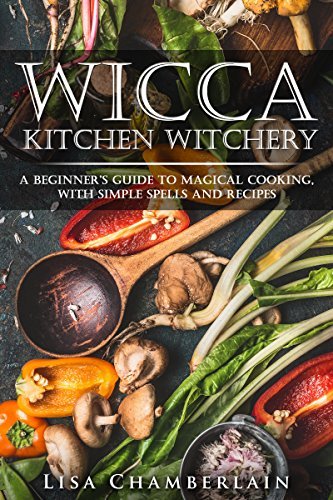
-
 sleepymr liked this · 1 month ago
sleepymr liked this · 1 month ago -
 youngandhappy liked this · 4 months ago
youngandhappy liked this · 4 months ago -
 aching-for-strength liked this · 5 months ago
aching-for-strength liked this · 5 months ago -
 isurvived2015 reblogged this · 1 year ago
isurvived2015 reblogged this · 1 year ago -
 usernamesarehard1 reblogged this · 1 year ago
usernamesarehard1 reblogged this · 1 year ago -
 usernamesarehard1 liked this · 1 year ago
usernamesarehard1 liked this · 1 year ago -
 starrrrryskies liked this · 1 year ago
starrrrryskies liked this · 1 year ago -
 gbdinfinitedrill reblogged this · 1 year ago
gbdinfinitedrill reblogged this · 1 year ago -
 gbdinfinitedrill liked this · 1 year ago
gbdinfinitedrill liked this · 1 year ago -
 strawberry-roan reblogged this · 1 year ago
strawberry-roan reblogged this · 1 year ago -
 strawberry-roan liked this · 1 year ago
strawberry-roan liked this · 1 year ago -
 wiipecsadaman liked this · 1 year ago
wiipecsadaman liked this · 1 year ago -
 derdadofirtio liked this · 1 year ago
derdadofirtio liked this · 1 year ago -
 siposnawapo liked this · 1 year ago
siposnawapo liked this · 1 year ago -
 fenurpujo liked this · 1 year ago
fenurpujo liked this · 1 year ago -
 kettaitaiblas liked this · 1 year ago
kettaitaiblas liked this · 1 year ago -
 lilygea liked this · 1 year ago
lilygea liked this · 1 year ago -
 devoted1989 liked this · 1 year ago
devoted1989 liked this · 1 year ago -
 selfpoisonstrategy liked this · 1 year ago
selfpoisonstrategy liked this · 1 year ago

I literally just reblog stuff for my Book of Shadows, feel free to use these too. Blessed be.
118 posts